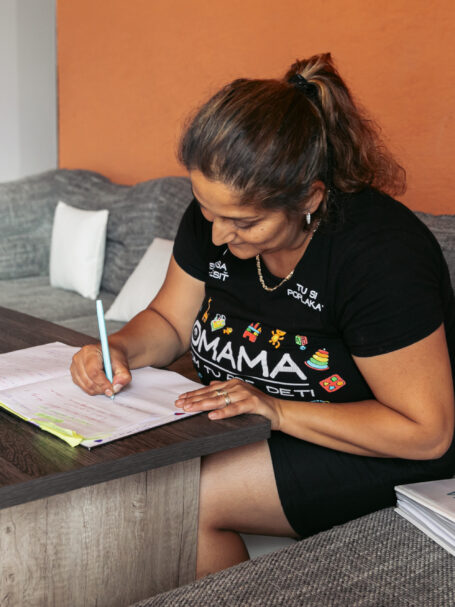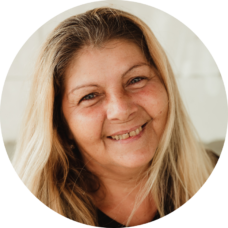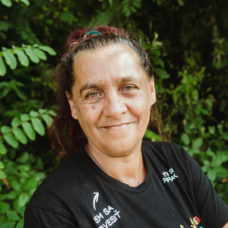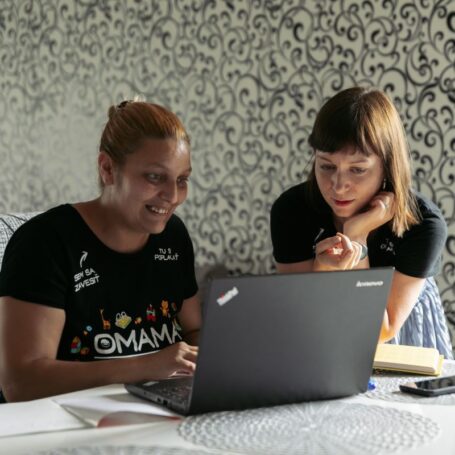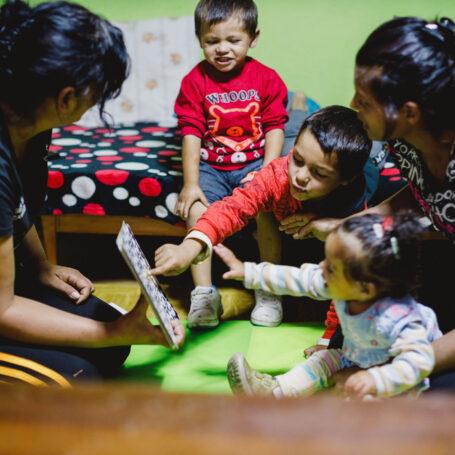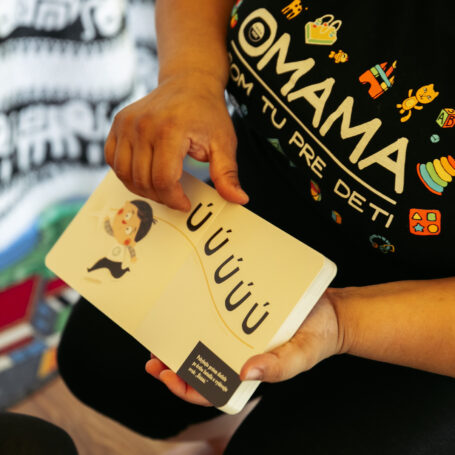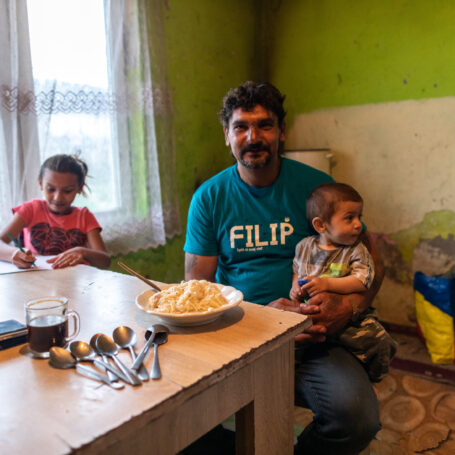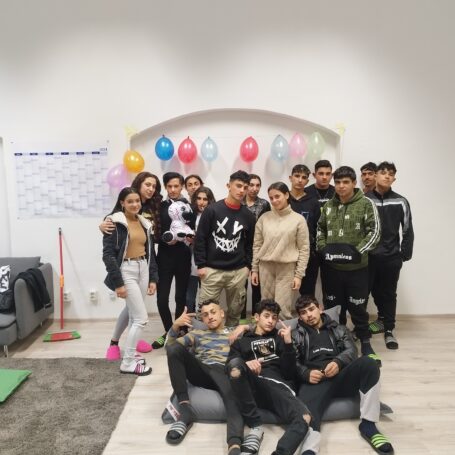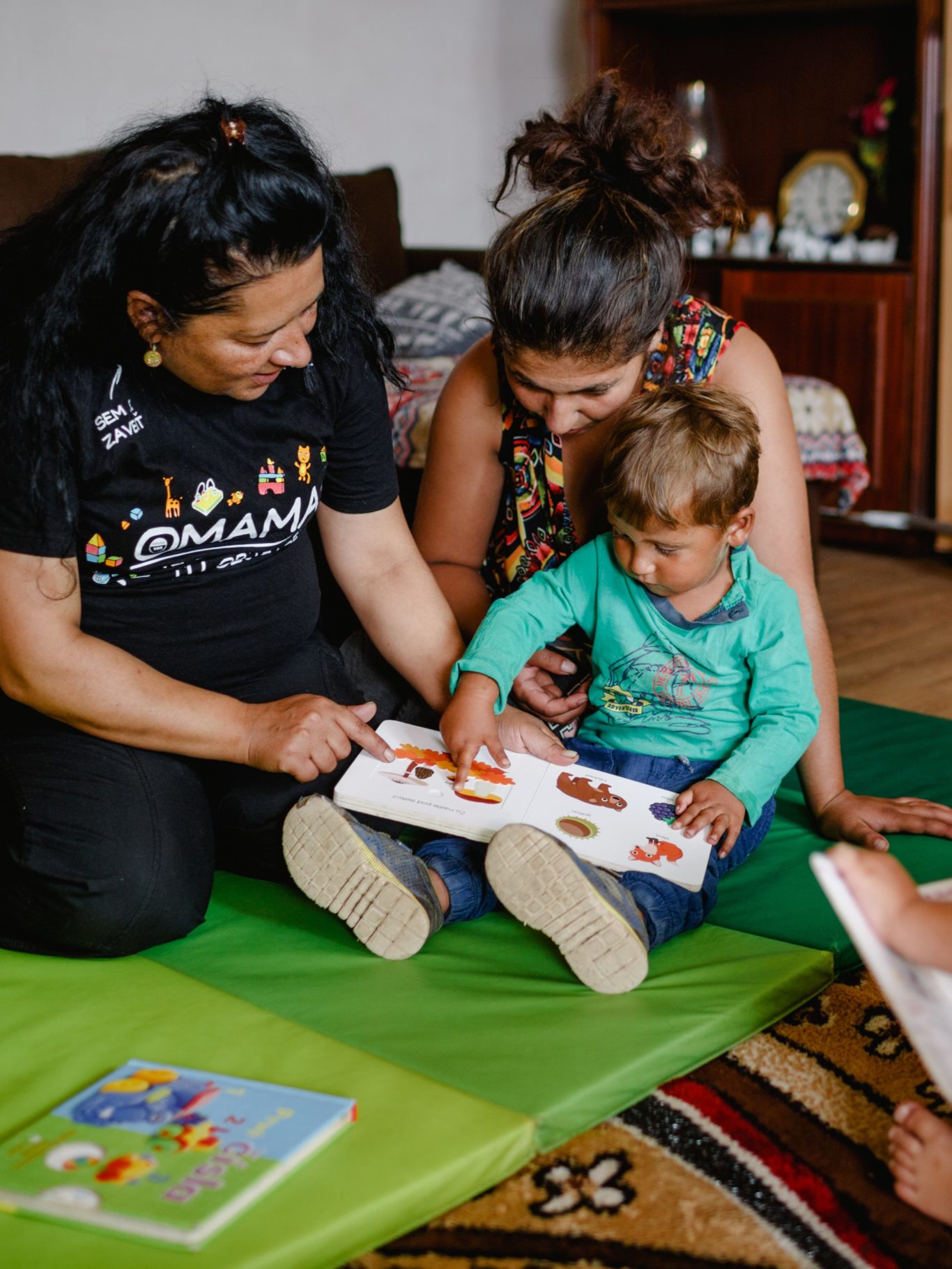
The AMAL program
To help us understand each other. The word “amal” means “friend” in international Romani, “hope” in Arabic and “hard work” in Hebrew. The volunteers in our program, called Amals, are people who have decided to share their time and knowledge with people from excluded Roma communities.
The AMAL program supports people from poor communities who want to develop their language skills and continue their education. We connect individuals from excluded communities with volunteers from the majority, known as Amals. Each volunteer is paired with a participant from the community to focus on enhancing Slovak language skills or explore other relevant subjects during their online lessons. However, it is not just about sharing knowledge; they exchange perspectives and life experiences and discover each other’s worlds. The program, therefore, also educates people from the majority and helps to foster understanding and build new connections. Initially, the program aimed to support Omamas in improving their language skills, as for many of them, Slovak is not their native language. Although they usually speak Slovak at a good communicative level, many of them struggled with new and specialized topics during their training sessions or found sharing experiences and expressing opinions challenging. Language is an integral part of our identity – it allows us to understand ourselves, process our thoughts, talk about our experiences, and connect with those around us. Through language, we can continue to learn and grow both intellectually and personally.
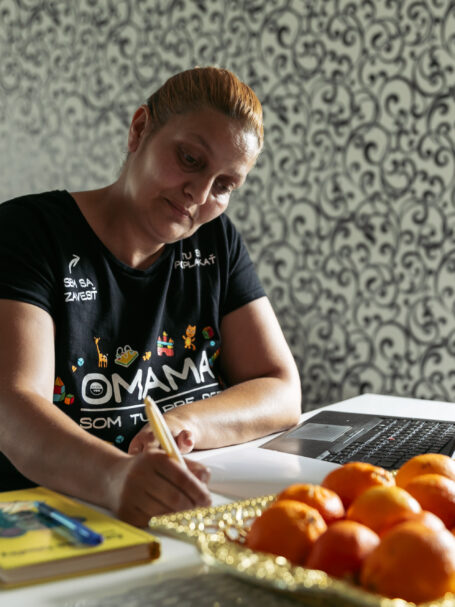
The focus of the AMAL program gradually expanded to cover all our programs, including OMAMA, ZEBRA and FILIP.
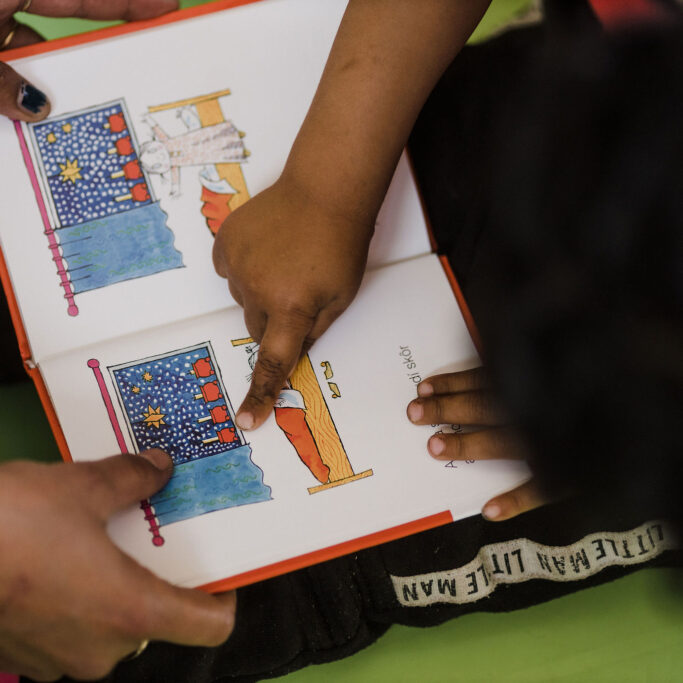
What challenges does AMAL address?
People from excluded poor communities often lack opportunities to improve their language skills and continue learning in ways that would suit their specific needs. A negative perception of the Roma people still prevails in society, with many people influenced by stereotypes, pre-conceived beliefs and a lack of direct interaction. People from excluded communities and the majority rarely have opportunities to meet, exchange experiences, and foster relationships with each other.

What are the main principles?
AMAL provides opportunities for people in poor communities to learn and grow through language learning and thematic lessons. It enriches and promotes their knowledge of Romani history, language, and culture, creates opportunities for sharing experiences, and strengthens the voice of the excluded communities. At the same time, the program also educates and raises awareness among the majority population, helping them to gain a deeper understanding of generational poverty.
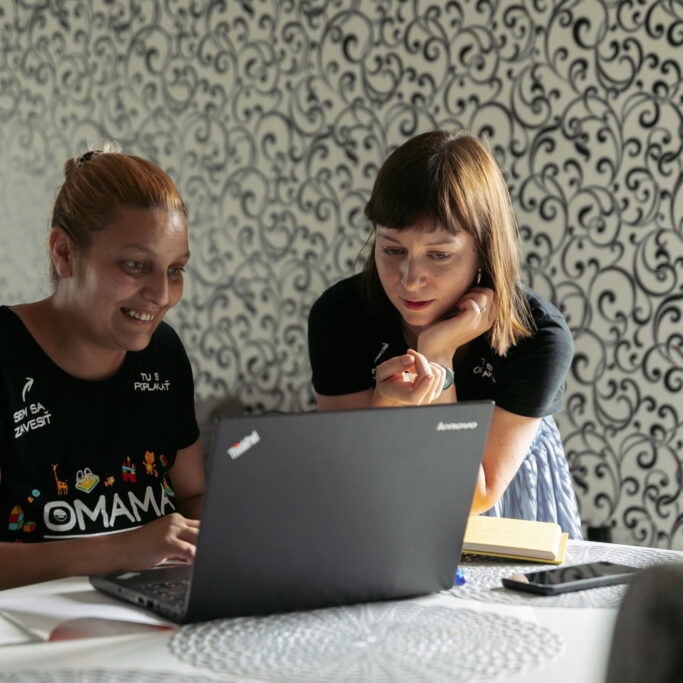
What is AMAL's goal?
With its innovative and proven methods, the AMAL program serves as a model of good practice, providing education, growth, and enrichment to everyone involved. Through personal experiences, it offers both volunteers and excluded community members new perspectives and insights, deepens mutual understanding, and contributes to developing an inclusive education ecosystem and social cohesion.
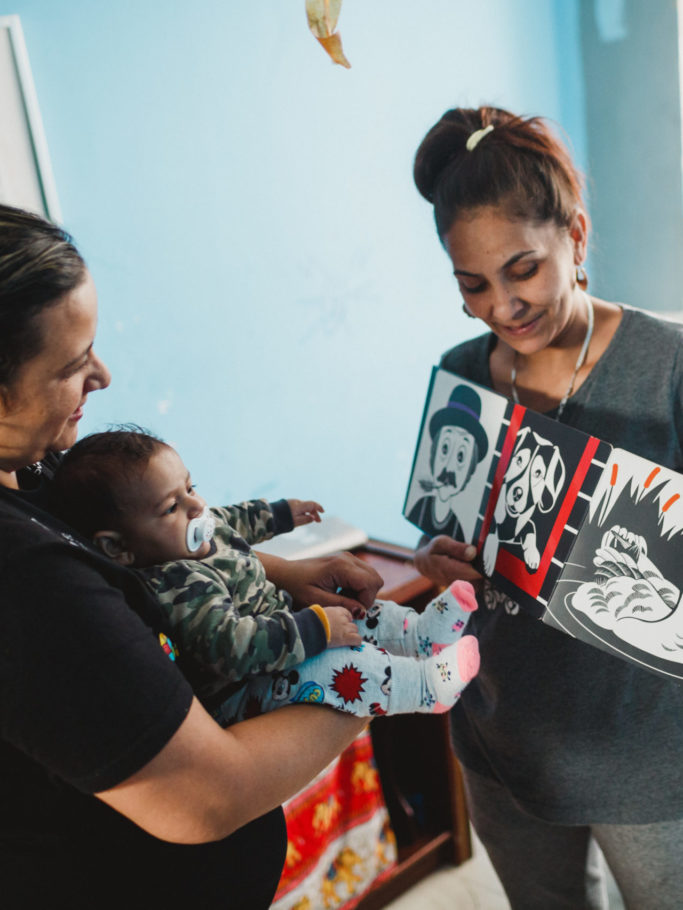
What do omamas say?
People behind the program:
